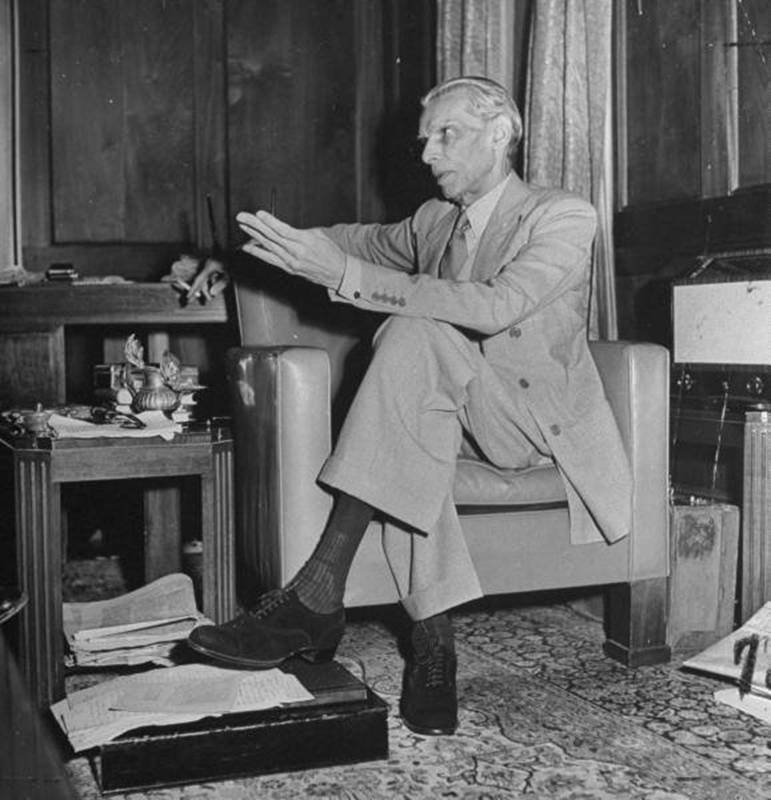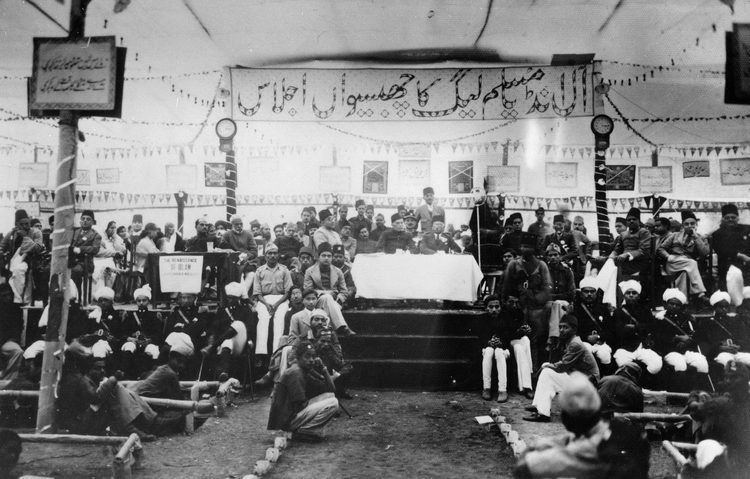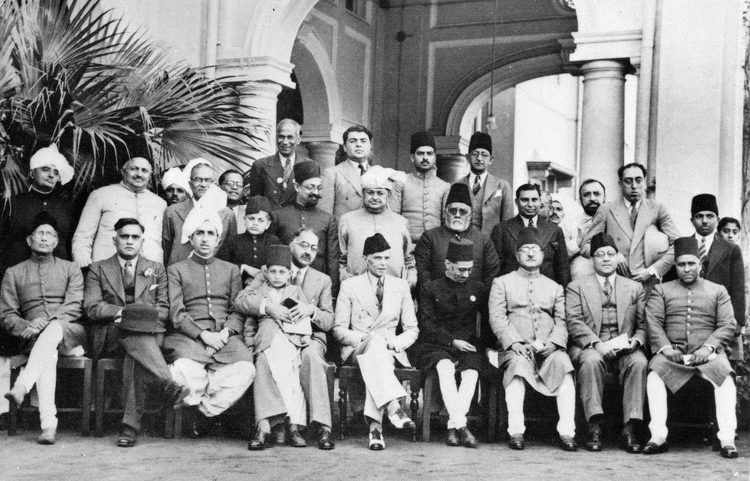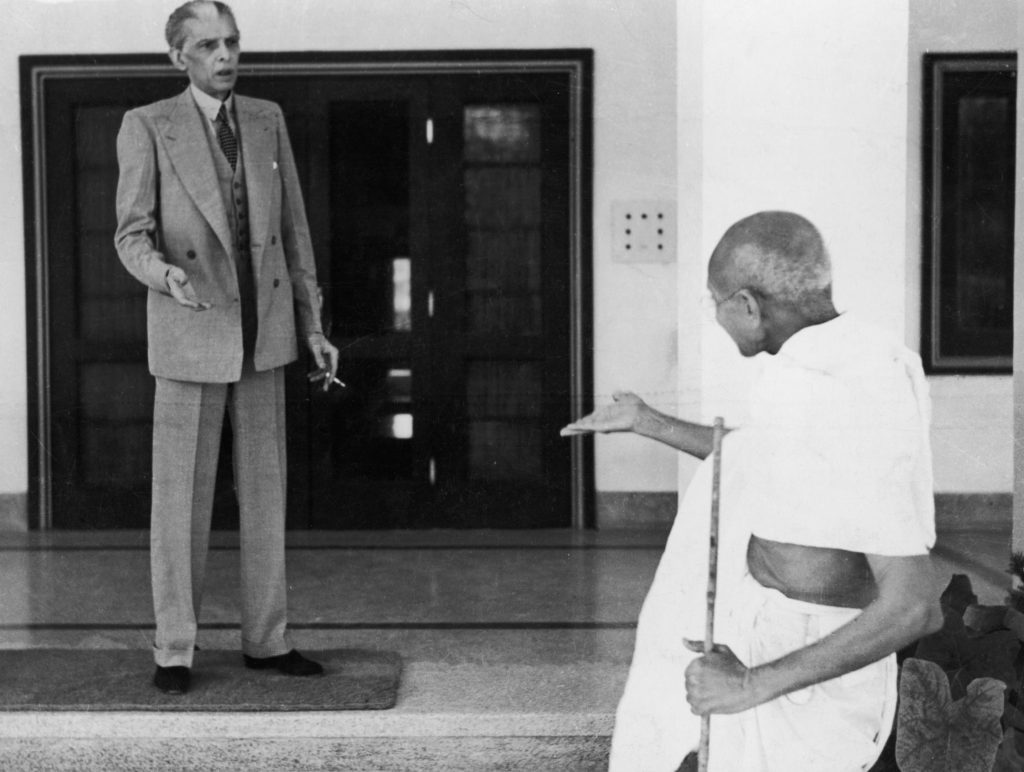Quaid Azam Day commemorates the birth anniversary of Muhammad Ali Jinnah, the visionary leader and founder of Pakistan. Celebrated with reverence and patriotic fervor, this day honors Jinnah’s indelible contributions to the creation of the nation. It serves as a reminder of his enduring legacy and the principles that guide the Pakistani people.

By Unknown author
A. Historical background and significance
In Pakistan, Quaid Azam Day is celebrated on December 25th each year to honor the birth anniversary of Muhammad Ali Jinnah, the founder of Pakistan. This day holds great historical significance as it marks the birth of the visionary leader who played a pivotal role in the creation of a separate homeland for Muslims in the subcontinent.
B. Overview of Jinnah’s Contributions to Pakistan’s independence
Quaid Azam, also known as the Great Leader, dedicated his life to the struggle for an independent nation for the Muslims of the Indian subcontinent. His resolute initiative and assurance brought about the foundation of Pakistan as a sovereign state on August 14, 1947.His contributions range from organizing political movements to negotiating with the British and Indian leaders to pave the way for Pakistan’s independence.
C. Importance of Honoring His Legacy
Honoring Quaid Azam’s legacy is crucial for preserving the principles he stood for and ensuring his vision for Pakistan continues to inspire future generations. His ideals of unity, faith, equality, and justice formed the foundation of Pakistan’s identity and are integral to its progress. By celebrating Quaid Azam Day, we pay tribute to his extraordinary leadership and reaffirm our commitment to upholding the values he cherished.
2. Quaid Azam’s Early Life: A Glimpse into his Journey
A. Early Upbringing and Education
Muhammad Ali Jinnah was born in Karachi, British India, on December 25, 1876. He belonged to a middle-class family and received his early education in Karachi. Jinnah’s parents instilled in him a strong sense of discipline, hard work, and dedication, which became the guiding principles of his life.
B. Influences that shaped his character and leadership skills
During his formative years, Quaid Azam was deeply influenced by his exposure to diverse cultures and beliefs. He admired the principles of justice, equality, and democracy propagated by prominent British leaders and sought to incorporate these values into his vision for an independent Pakistan. The teachings of great philosophers like Thomas Jefferson and John Locke also played a significant role in shaping his political ideology.
C. Initial Political Engagement and protest for Indian Muslims
Quaid Azam began his political career by joining the Indian National Congress, where he served for the rights of all Indians, including Muslims. However, disillusioned by the Congress’ limited support for Muslim interests, he eventually joined the All India Muslim League and emerged as a prominent advocate for the rights of Indian Muslims. His commitment to their cause became the driving force behind his relentless efforts for a separate homeland.

By This file has been provided by the British Library from its digital collections. Catalogue entry: Photo 429/(5), Public Domain,
3. Quaid Azam’s Vision for Pakistan: Inspiring a Nation
A. Articulating the idea of a separate homeland for Muslims
One of Quaid Azam’s most significant contributions was his unwavering belief in the establishment of a separate homeland for Indian Muslims. In his famous Lahore Resolution of 1940, he presented this idea eloquently, calling for the establishment of an independent state in which Muslims were able to freely practice their faith and live based to their traditions.

- By This file has been provided by the British Library from its digital collections.Catalogue entry: Photo 429/(6), Public Domain,
B. Advocacy for equal rights, religious freedom, and democracy
Quaid Azam envisioned a Pakistan where all citizens, regardless of their religious or ethnic backgrounds, would enjoy equal rights and opportunities. He tirelessly advocated for religious freedom and democracy, emphasizing that every individual should have the freedom to practice their religion without fear or discrimination. His vision for Pakistan was rooted in the principles of justice, inclusivity, and democratic governance.
C. Visionary economic plans for a prosperous Pakistan
In addition to his political and social aspirations, Quaid Azam also had a clear vision for economic prosperity in Pakistan. He recognized the importance of industrialization, investment in education, and the protection of workers’ rights. Quaid Azam’s economic policies sought to create a robust economy that would alleviate poverty, increase employment opportunities, and create a better standard of living for all Pakistanis.
4. 7 Inspirational Quotes by Quaid Azam: Wisdom for Generations
A. Quote 1: Unity and Faith – The Foundational Pillars of Progress
“Pakistan will not be a theocratic state ruled by priests with divine missions.” We have a lot of non-Muslims — Hindus, Christians, and Parsis — but they’re all Pakistanis. They will have the same rights and privileges like any other citizen and will play their proper role in Pakistani affairs.”
Quaid Azam emphasized the importance of national unity despite religious and ethnic diversity. He They believed a united nation founded on faith would progress toward an improved future. His quote promotes inclusivity and reminds us that diversity should be celebrated rather than used as a source of division.
B. Quote 2: Education – The Key to Enlightenment and Progress
“Without education, there is total darkness; with education, it is light For our country, education is a matter of life and death.”
Quaid Azam realized the transformative power of education in individuals and societies.. He believed that education was the key to eliminating ignorance, poverty, and inequality. His quote underscores the significance of education as a fundamental right and its role in fostering progress and enlightenment.
C. Quote 3: Democracy – Ensuring Justice and Equality
“Democracy is in the blood of of all Muslims, that look upon the complete equality of humanity, and believe in brotherhood, equality, and liberty.”
Quaid Azam firmly believed in democratic principles, viewing them as essential for ensuring justice, equality, and the empowerment of the people. His quote reflects his conviction that democracy resonated with the ideals of Islam and was the path towards a just and prosperous society.
D. Quote 4: Social Justice
“You are free. You are now free to visit your temples. In this state of Pakistan, you are free to visit your mosques or other places of worship. You can be of any religion, caste, or creed; it has nothing to do with the state’s business.”
Quaid Azam was vehemently against all forms of discrimination and worked tirelessly to create a society based on fairness and compassion. His quote highlights his commitment to an inclusive nation where individuals could freely practice their faiths without fear of persecution or marginalization.E. Quote 5: Nationalism – Patriotism and Love for Pakistan
“Think hundreds of times before you take a decision, but after that decision is taken, stand by it as one man.”
Quaid Azam’s quote encapsulates his unwavering dedication to Pakistan. He believed in the power of nationalism and encouraged citizens to work together for the greater good of their country. His words serve as a reminder that individual commitment is essential for the collective progress and stability of Pakistan.
5. Celebrating Quaid Azam Day:
A. Commemorative events and ceremonies
Quaid Azam Day is commemorated through various events and ceremonies held across Pakistan. These include flag hoisting ceremonies, cultural performances, and exhibitions showcasing Quaid Azam’s life and achievements. The day is an opportunity for the nation to come together and pay tribute to its founding father.

By Kulwant Roy – Published in Muhammad Ali Jinnah: A Political Study by Matlubul Hassan Saiyid (Lahore: Shaikh Muhammad Ashraf, 1945), plate following page 807. Copyright expired 1995., Public Domain,
B. Tribute speeches and discussions
Public figures, politicians, and scholars deliver tribute speeches to honor Quaid Azam’s contributions to Pakistan. These speeches highlight his leadership qualities, political acumen, and foresight in envisioning an independent state. Discussions and seminars are also held to analyze and appreciate his enduring legacy.
C. Remembrance initiatives and educational programs
On Quaid Azam Day, numerous remembrance initiatives and educational programs are organized to ensure that his principles and teachings are passed down to future generations. These initiatives involve schools, colleges, and universities, with activities such as essay competitions, debates, and quizzes centered around Quaid Azam’s life and vision.
6. Summary: Quaid Azam’s Enduring Legacy
A. Recap of Muhammad Ali Jinnah contributions and principles
Quaid Azam’s contributions were instrumental in the attainment of Pakistan’s independence and the establishment of a democratic nation. His unwavering commitment to principles such as unity, faith, equality, and justice has left a lasting impact on the country.
B. Impact on Pakistan and its people
Quaid Azam’s vision and leadership continue to shape Pakistan’s political landscape, social fabric, and national ethos. His efforts have laid the groundwork for a country that embraces diversity, values democracy, and strives for progress. The values he upheld serve as a guiding light for Pakistan’s journey towards a prosperous and harmonious future.
C. An invitation to carry on his vision for a progressive nation
The enduring legacy of Quaid Azam calls on every Pakistani to embrace and uphold his vision for a progressive nation. It is an invitation to actively contribute to the creation of a society that values unity, democracy, education, and social justice. By honoring his memory and carrying forward his principles, we can work towards achieving the prosperous Pakistan he dreamed of.
7. Frequently Asked Questions (FAQs)
A. Why is Quaid Azam’s birthday celebrated as Quaid Azam Day?
Quaid Azam’s birthday, which falls on December 25th, is celebrated as Quaid Azam Day to honor his extraordinary leadership and his role in the creation of Pakistan. It is a day to remember and pay tribute to the visionary leader who laid the foundation of the nation.
B. What were some of Quaid Azam’s major achievements?
Quaid Azam’s major achievements include his unwavering commitment to the establishment of Pakistan as a separate homeland for Muslims, his leadership in negotiating the terms of partition with the British and Indian leaders, and his instrumental role in drafting the constitution of Pakistan.
C. How can we incorporate Quaid Azam’s teachings into our daily lives?
We can incorporate Quaid Azam’s teachings by promoting unity, embracing diversity, upholding democratic values, fighting against injustice and inequality, and actively contributing to the progress and development of Pakistan. Following his ideals of faith, equality, and justice will help us create a more inclusive and prosperous society.
D. What are some recommended resources to learn more about Quaid Azam’s life and leadership?
To learn more about Quaid Azam’s life and leadership, one can refer to books such as “Jinnah of Pakistan” by Stanley Wolpert and “Quaid-i-Azam Jinnah: Studies in Interpretation” by Akbar S. Ahmed. Documentaries and biographical films like “Jinnah” can also provide valuable insights into his life and contributions.
E. How can people get involved in Quaid Azam Day celebrations?
Individuals can actively participate in Quaid Azam Day celebrations by attending flag hoisting ceremonies, engaging in community service initiatives, organizing educational programs, and promoting awareness about Quaid Azam’s vision and principles through social media campaigns and discussions. Volunteering at local events and contributing to charitable causes in Quaid Azam’s name are also great ways to actively participate.
More Related Articles:
Allama Iqbal poetry in english Urdu 2 Lines | Best Poetry in Urdu
